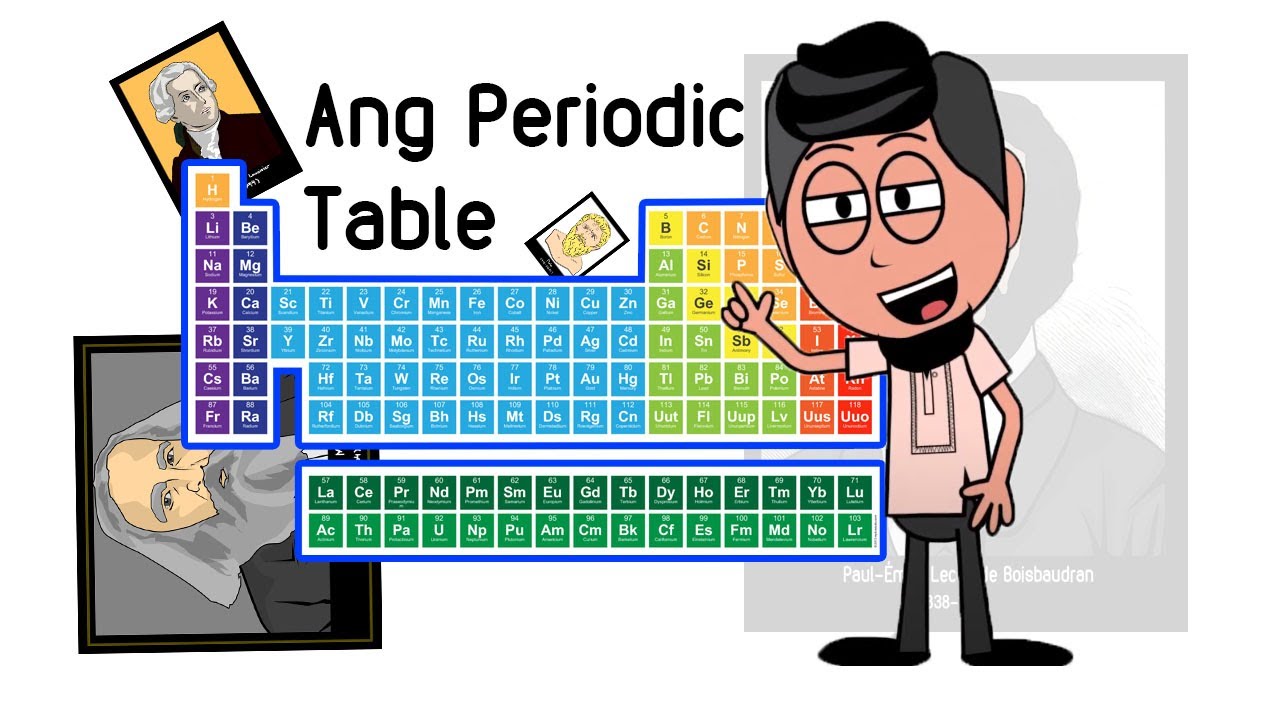Dmitri Mendeleev: Great Minds
Summary
TLDRThe script celebrates Dmitri Mendeleev, the father of the periodic table, born in Siberia in 1834. Despite a near-death experience with tuberculosis, Mendeleev went on to revolutionize chemistry with his Periodic Law, which organized elements by atomic weight and predicted the existence of yet-undiscovered elements. His personal life was as dramatic as his scientific contributions, including a controversial marriage to his niece's friend after divorcing his first wife. Despite not winning a Nobel Prize due to a feud with a Swedish chemist, Mendeleev's legacy endures, with an element named mendelevium in his honor.
Takeaways
- 🌟 Dmitri Mendeleev is renowned for creating the original periodic table of elements, a significant contribution to the field of chemistry.
- 🐯 Born in Siberia in 1834, Mendeleev was the youngest of a large family and almost died from tuberculosis as a teenager.
- 🎓 His mother's support sent him to Saint Petersburg to study and become a scientist, where he later became a professor.
- 📚 Mendeleev's dissertation 'On the Combinations of Water and Alcohol' and his work on 'The Principles of Chemistry' led to his formulation of the Periodic Law.
- 🔬 The Periodic Law proposed that elements arranged by atomic weight and similar properties would exhibit periodicity, which Mendeleev illustrated in his early periodic table.
- 🔍 Mendeleev's periodic table had spaces for elements that he predicted would be discovered, with seven of his ten predictions eventually confirmed.
- 💡 His foresight in predicting the properties of undiscovered elements showcased his deep understanding and the accuracy of his periodic system.
- 💔 Despite his scientific achievements, Mendeleev's personal life was tumultuous, including a controversial marriage to his niece's best friend.
- 🏆 Tsar Alexander's support allowed Mendeleev to become the Director of the Bureau of Weights and Measures, influencing the standardization of vodka's alcohol content.
- 🛢️ Mendeleev was also instrumental in the study of petroleum and the establishment of Russia's first oil refinery.
- 🚫 He was nominated for a Nobel Prize for his work on the periodic system but was denied due to conflicts with Swedish chemist Svante Arrhenius.
- 🏅 Mendeleev's legacy is honored with the naming of a synthetic, radioactive element after him: mendelevium.
Q & A
Who is Dmitri Ivanovich Mendeleev and what is he famous for?
-Dmitri Ivanovich Mendeleev was a Russian chemist who is most famous for creating the original periodic table of elements.
What was Mendeleev's contribution to the field of chemistry?
-Mendeleev's major contribution was the formulation of the Periodic Law and the creation of the first periodic table, which organized elements by atomic weight and similar properties.
What did Mendeleev predict about the elements that were missing in his initial periodic table?
-Mendeleev predicted the existence and properties of elements that were missing in his initial periodic table, and he accurately theorized the properties of those elements.
How many elements did Mendeleev predict would be discovered, and how many were eventually found?
-Mendeleev predicted ten elements in his first table, and seven of them were eventually discovered.
What was Mendeleev's personal life like, and how did it affect his public image?
-Mendeleev's personal life included an obsession with his niece's best friend, leading him to divorce his first wife and marry her, which was considered bigamy by the Russian Orthodox Church. Despite this, he was supported by Tsar Alexander.
What role did Mendeleev play in the standardization of vodka in Russia?
-Mendeleev was made the Director of the Bureau of Weights and Measures, where he established the official standards for the production of vodka, including the requirement that it must be exactly 40 percent alcohol.
How did Mendeleev's work with petroleum contribute to Russia's economy?
-Mendeleev pioneered the study of petroleum and helped found Russia's first oil refinery, contributing to the development of one of Russia's major export industries.
Why was Mendeleev not awarded the Nobel Prize in 1906 despite his significant contributions to science?
-Mendeleev was nominated for a Nobel Prize in 1906 for his Periodic Law, but he was denied the prize due to a conflict with influential Swedish chemist Svante Arrhenius, who lobbied against him on the Nobel committee.
What posthumous honor did Mendeleev receive in recognition of his scientific achievements?
-Mendeleev received the honor of having a chemical element named after him, which is mendelevium, a synthetic and highly radioactive element.
What was Mendeleev's educational background, and how did it influence his work on the periodic table?
-Mendeleev was sent by his mother to Saint Petersburg to study and become a scientist. He later became a professor, and his work on 'The Principles of Chemistry' led to the formulation of the Periodic Law and the creation of the periodic table.
Outlines

Dieser Bereich ist nur für Premium-Benutzer verfügbar. Bitte führen Sie ein Upgrade durch, um auf diesen Abschnitt zuzugreifen.
Upgrade durchführenMindmap

Dieser Bereich ist nur für Premium-Benutzer verfügbar. Bitte führen Sie ein Upgrade durch, um auf diesen Abschnitt zuzugreifen.
Upgrade durchführenKeywords

Dieser Bereich ist nur für Premium-Benutzer verfügbar. Bitte führen Sie ein Upgrade durch, um auf diesen Abschnitt zuzugreifen.
Upgrade durchführenHighlights

Dieser Bereich ist nur für Premium-Benutzer verfügbar. Bitte führen Sie ein Upgrade durch, um auf diesen Abschnitt zuzugreifen.
Upgrade durchführenTranscripts

Dieser Bereich ist nur für Premium-Benutzer verfügbar. Bitte führen Sie ein Upgrade durch, um auf diesen Abschnitt zuzugreifen.
Upgrade durchführen5.0 / 5 (0 votes)






